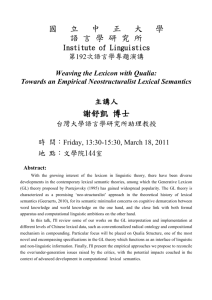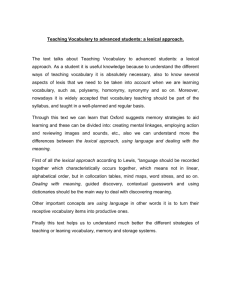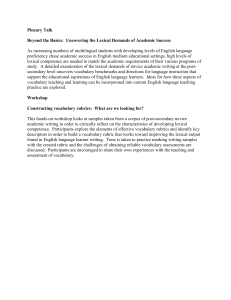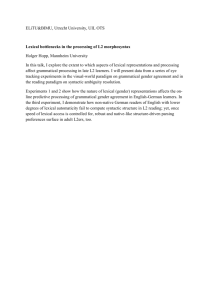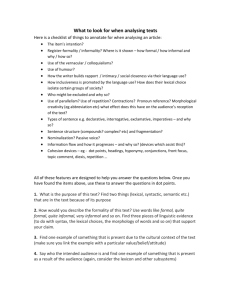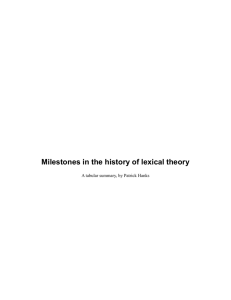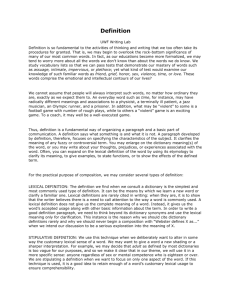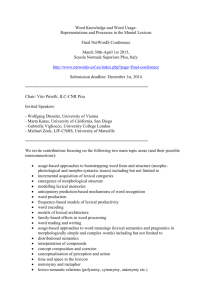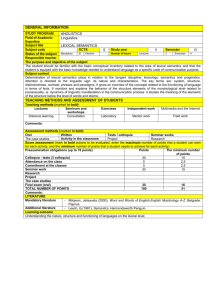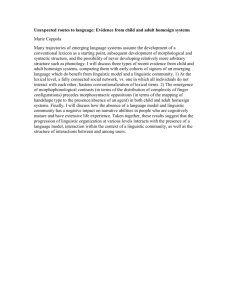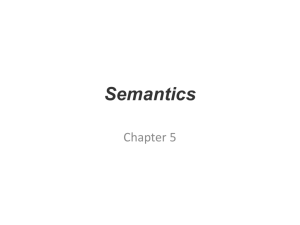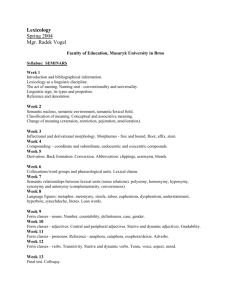lexical interpreted
advertisement
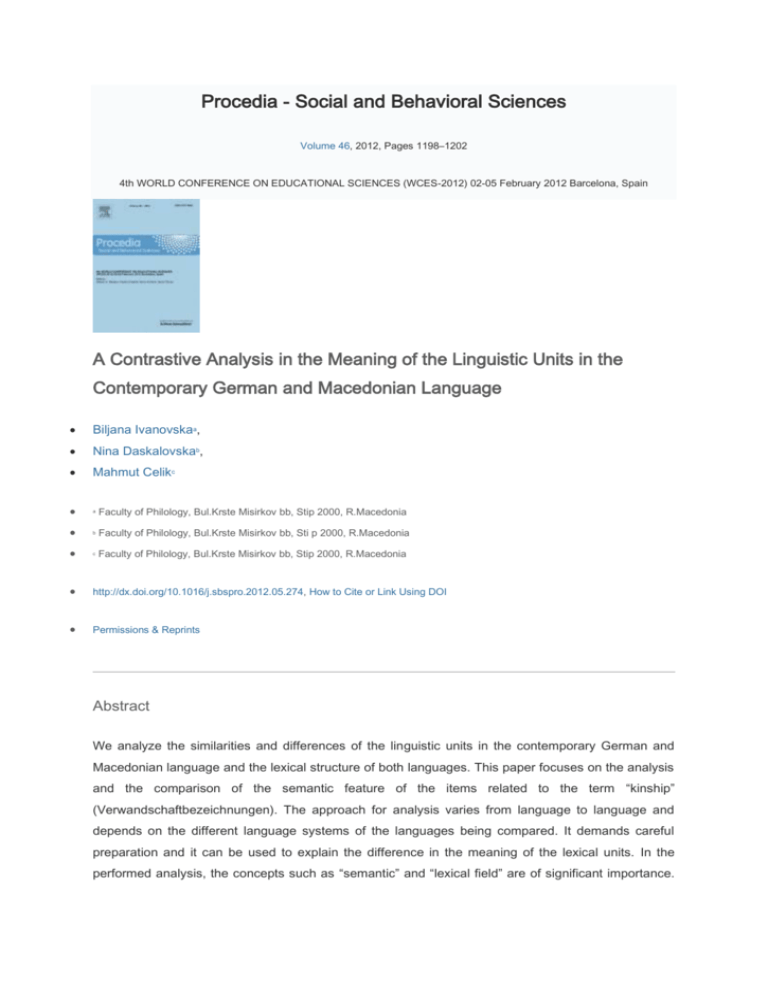
Procedia - Social and Behavioral Sciences Volume 46, 2012, Pages 1198–1202 4th WORLD CONFERENCE ON EDUCATIONAL SCIENCES (WCES-2012) 02-05 February 2012 Barcelona, Spain A Contrastive Analysis in the Meaning of the Linguistic Units in the Contemporary German and Macedonian Language Biljana Ivanovskaa, Nina Daskalovskab, Mahmut Celikc a Faculty of Philology, Bul.Krste Misirkov bb, Stip 2000, R.Macedonia b Faculty of Philology, Bul.Krste Misirkov bb, Sti p 2000, R.Macedonia c Faculty of Philology, Bul.Krste Misirkov bb, Stip 2000, R.Macedonia http://dx.doi.org/10.1016/j.sbspro.2012.05.274, How to Cite or Link Using DOI Permissions & Reprints Abstract We analyze the similarities and differences of the linguistic units in the contemporary German and Macedonian language and the lexical structure of both languages. This paper focuses on the analysis and the comparison of the semantic feature of the items related to the term “kinship” (Verwandschaftbezeichnungen). The approach for analysis varies from language to language and depends on the different language systems of the languages being compared. It demands careful preparation and it can be used to explain the difference in the meaning of the lexical units. In the performed analysis, the concepts such as “semantic” and “lexical field” are of significant importance. The aims of the analysis are to interpret the specific semes of the lexical units and to help learners see the differences in meaning of the lexical items in these two different language systems. Keywords contrastive analysis; linguistic units; semantic; lexical field
